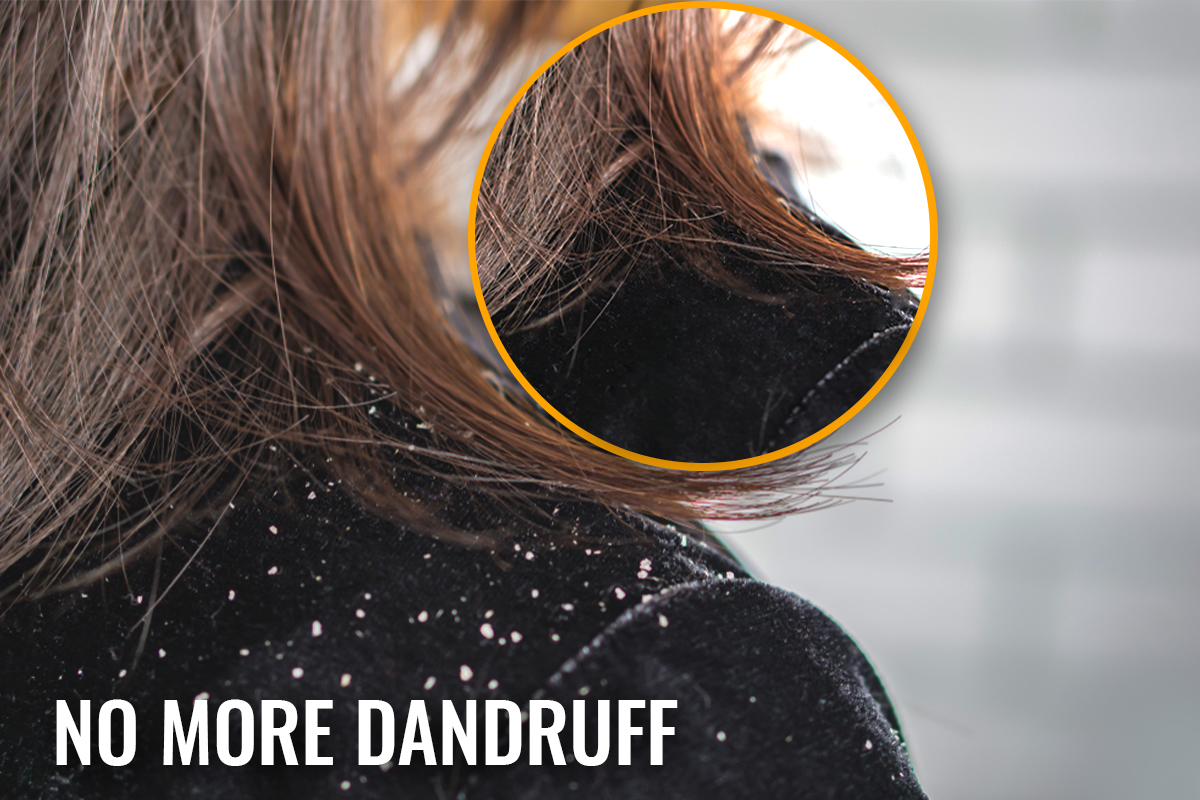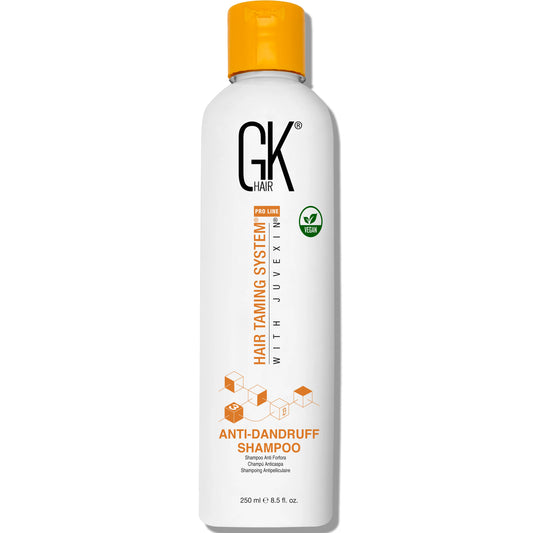Let's lay it all out without the frills: the frequent itching and flaking that comes with dandruffs is enough to get you all worked up. Dandruff often results from an oily or dry scalp, or other skin conditions severe enough to disrupt your routine. Here's the good news: you can eliminate dandruff with scalp treatments. This guide contains all the methods to get rid of dandruff.
Causes of Dandruff
Here's the question that's got nearly everyone with hair concerned, and even the males aren't exempted. As with skin, the top layer of the scalp is shed and renewed one at a time. In cases of dandruff, the scalp gets inflamed by overgrowth of a yeast fungus called Malassezia. This causes the shredded dead cells to clog and fall off as flakes.
Dandruff vs Dry Scalp
Many people mistake dandruff to be dry scalp. Meanwhile, dandruffs can be found on oily scalps too. While dry scalp is a hair problem, in reality, dandruff is even more severe. Dry scalp can be easily remedied with moisture from a dry scalp treatment but extra effort is needed to get rid of dandruff. It is advisable to understand the difference between these conditions in order to treat it with the right hair care tips and products, according to their symptoms.
Symptoms of Dandruff
Dandruff may present itself as flakes of dry skin, more visible when your hair is naturally black or colored dark, or when you wear dark clothes. Other common symptoms of dandruffs are hair loss and itching. Dandruff does not always signify a medical condition. It may simply be your hair telling you it is dry, oily or you need to change your hair care products. In some cases though, it is indicative of medical conditions like psoriasis, seborrheic dermatitis, eczema—and in such situations, seeking dermatological help is necessary according to the American Academy of Dermatologists.
Recommended Treatments to Get Rid of Dandruff Effectively
It may be difficult to completely avoid dandruffs, but there are effective treatments on how to prevent them before they start showing signs. Here, we divide 7 of them into lifestyle and home remedies.
Lifestyle Remedies for Dandruff
Some dandruffs are mild—can be easily controlled by regular washing with anti-dandruff shampoo—while some can run rampant. You have to carefully choose a dandruff shampoo as you want to make things easier. GK Hair’s Anti-dandruff Shampoo offers gentle washing while relieving irritation, without causing allergic reactions.
Eat a Healthy Diet
To effectively get rid of dandruff or prevent them, you need zinc, vitamin B and a quantifiable amount of fatty acids. A diet that offers these will relieve inflammation and prevent dandruff.
Get in With a Routine for Your Hair Type and Condition
Those with oily scalp suffer much more from dandruff than those whose scalp is dry. They might need to engage in regular washing to loosen and remove flaky buildup. While for dry scalp, using the best dandruff shampoo will cut down washing frequency as your hair needs to retain oil and moisture.
Read How to Use Anti-dandruff Shampoo for Maximum Benefits for more hair care tips.
For coily, curly or coarse hair with dandruff—wash hair as often as needed with a clarifying duo like GK Hair’s Moisturizing Shampoo and Conditioner. Then, pair with a dandruff shampoo once a week. Getting GK Hair’s Intense Moisture Pack is a great way to redeem your damaged curly hair, it is currently selling at a discount price so go get yours.
For fine, thin or naturally straight hair with dandruff—wash hair daily with a Balancing Shampoo. Use a dandruff shampoo at most twice a week.
Step Out in the Sun
If you're a lover of indoor spaces, you'd find out that your hair may not see the light of day literally in 2-3 days. Put deliberate efforts to keep your head out in the sun and nourish your scalp with exposure to light. There's a warning though: Don't sunbathe as it can expose you to UV rays that can lead to cancer.
Manage Stress
Stress inhibits immune actions and can trigger fungal activities, which is a major causative organism of dandruffs. Drown the stress in a soothing, refreshing activity or take a well-deserved nap.
Home or Natural Remedies for Dandruff
Shampoos need not be medicated to do the work. You could even get some without a prescription, but from a trusted, certified hair care line like GK Hair—a unique juvexin-infused, protein hair product brand. For a change, you can try some natural remedies before going for medical options for dandruff treatment.
Use Coconut Oil
Coconut oil should be your first resort after a dandruff shampoo try. Although they can leave hair greasy, and possess antifungal properties that can provide relief from constant itching and dryness. You could also explore other great options like GK Hair’s Argan Oil Serum as they work against dandruff-causing pathogens. Massage onto your scalp and leave for 30-60 minutes. Rinse out, wash and apply GK Hair’s Deep Conditioner. Another option is to mix your coconut oil with lemon or lime as they contain vitamins and minerals that strengthen growth of hair follicles.
Use Tea Tree Oil
Your next go to is the tea tree oil which has gained popularity in treating dandruff over the years. The oil reduces growth of fungi that cause dandruffs.
Apply Baking Soda
Their chemical nature helps reduce excessive oil production. Rub a baking soda solution on the scalp to get a desired result.
Experiencing mild dandruff symptoms? Don't wait for them to become rampant and overwhelming. Take the bull by the horn and treat it immediately as you start to notice them. Restore damaged hair with The Best Keratin Hair Treatment and keep it sleek, smooth and soft.















It is an informative and educational topic focusing on the ways to get rid of Dandruff Effectively. Thanks for sharing the useful blog. All scalp and hair lovers should go through your topic and will benefit. I learned a lot about dandruff and getting rid of it from your topic. I like your blog, and I also prefer organic products
Leave a Comment